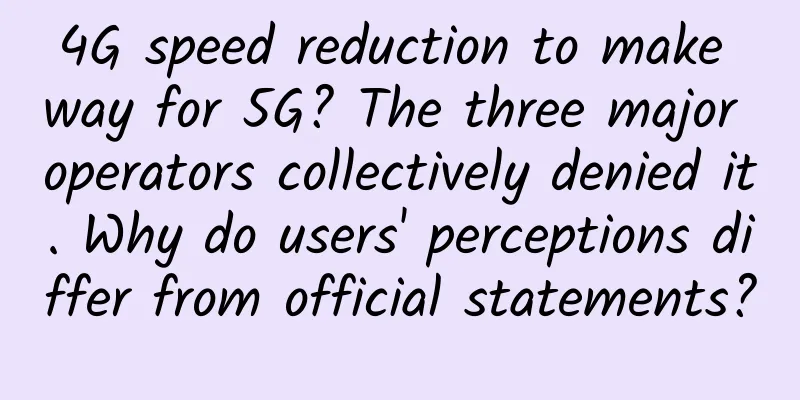How did Huawei Cloud become a public cloud leader after just over a year in the market?

|
[51CTO.com original article] Huawei Cloud has ambitions in the public cloud market, and Huawei has never concealed this. In March 2017, China's public cloud market was crowded with early entrants, but the latecomer Huawei was no exception. In the words of Zheng Yelai, Huawei's vice president and president of Cloud BU, a year later, "Advantages cannot stop trends" and "Everyone must actively embrace change. We may not be the best today, but we must be the fastest progressing." No one would regard Zheng Yelai's words as self-boasting, because just three days ago, the world's authoritative research organization Forrester just released a report that comprehensively evaluated China's mainstream public cloud vendors from three dimensions: strategy (horizontal axis), product (vertical axis) and market (circle volume). Huawei Cloud entered the top quadrant with its leading technical strength and full-stack product capabilities, excellent localized service capabilities and a complete ecosystem.
Huawei Cloud's three steps towards becoming a "big company" In the report "The Forrester Wave™: Full-Stack Public Cloud Development Platforms In China, Q3 2018", Forrester highly recognized three characteristics of Huawei Cloud. The first is Huawei Cloud's service capabilities, which Forrester even gave a perfect score of 5. This is actually easy to understand, because Huawei has been deeply involved in the enterprise market for many years, and its deep understanding of enterprise customers and its online and offline service capabilities are beyond doubt. The second is the construction of Huawei Cloud's ecosystem. Since Huawei proposed the concept of "black soil", it has been committed to building an ecosystem with partners. In the first half of 2018, Huawei Cloud achieved a rapid growth of 45% in partners. Huawei Cloud's leading ecosystem based on a neutral business attitude has also been fully recognized by Forrester. The third is the technical strength of Huawei Cloud. Forrester believes that Huawei is a very visionary practitioner and has made major breakthroughs in technology. The rapid innovation of Huawei Cloud is impressive. As we all know, Huawei has deep technical accumulation in chips, hardware, operating systems, databases and other capabilities, and also has a huge competitive advantage in software and hardware collaborative integration. The reporter learned that Huawei Cloud Software Development Service DevCloud platform currently has 90,000 online developers, Huawei Cloud EI Intelligent Body is promoting the implementation of AI in industry application scenarios, and the network-enhanced cloud server C3ne is helping cloud computing enter the era of global network forwarding. Huawei Cloud's full-stack cloud container platform supports a variety of heterogeneous container running resources and a variety of container deployment methods, providing users with high-performance, high-reliability, and complete full-stack full-scenario container deployment and management services... Huawei Cloud: "both internal and external" Over the past year or so, Huawei Cloud has grown at an astonishing rate. It is no exaggeration to describe Huawei Cloud as "down-to-earth" as "spring breeze comes suddenly, thousands of pear trees bloom". So far, Huawei Cloud has launched more than 120 cloud services in 16 categories and more than 60 solutions. In addition, according to *** data, Huawei Cloud's revenue increased by 700% year-on-year. In the first half of 2018 alone, 872 new applications were launched in the cloud market. Many government and enterprise customers' core data and valuable data have been safely moved to Huawei Cloud. What enabled Huawei Cloud to accumulate strength and burst out with strong strength in just a dozen months as a newcomer to the public cloud market? The reporter believes that this is mainly due to Huawei Cloud's "internal and external cultivation". First of all, "the iron must be hard to forge", Huawei's own strength has been improving. This strength includes both Huawei's technical capabilities and Huawei's strategic layout for the public cloud market. As we all know, although Huawei Cloud only made a high-profile announcement to enter the public cloud market last year, in fact, Huawei's research in the field of cloud computing began as early as ten years ago. Today, Huawei's innovation and R&D cover computing, storage, networking, security, network, and now popular AI chips. Starting from the "core", Huawei Cloud combines software and hardware to maximize performance and provide enterprises with stable, reliable, secure, trustworthy and sustainable cloud services. In the first half of 2018, Huawei Cloud set its sights on AI, insisting on promoting inclusive AI that is "affordable, easy to use, and safe to use", abiding by business boundaries, and focusing on technological innovation. Secondly, it is to form a "joint force" with external partners and win high recognition from corporate customers. The saying of Huawei's intelligent "black soil" has been deeply rooted in people's hearts, and the increase in the number of partners in the first half of this year also proves the attractiveness of Huawei's "black soil". Today, Huawei's customer base is spread across major industries: in logistics application scenarios, Huawei Cloud EI intelligent video service solves the problem of intelligent detection of violent sorting, with an accuracy rate of up to 68%, greatly improving efficiency; in the government industry, Huawei Cloud helps a provincial public security department to achieve the convergence and interconnection of parking data across the province, and open up service functions such as traffic road information release, safe driving tips, parking guidance, and police-civilian interaction; in the large enterprise market, Harbin Pharmaceutical Group moved its core business to Huawei Cloud, and through Huawei Cloud's flagship bare metal service capabilities, it shortened the time for intelligent report generation from 3 days to 3 hours. There are many similar industry cases. These service cases that are highly praised by customers have once again stimulated the healthy growth of Huawei Cloud from the outside, and finally formed an upgrade and interaction of "both inside and outside". Huawei Cloud has technology, a bright future, and is trustworthy. As the "leading" Huawei Cloud, it will continue to grow, lead more partners on the road, and expand China's cloud computing path. [51CTO original article, please indicate the original author and source as 51CTO.com when reprinting on partner sites] |
>>: IPv6 has a "red" start, and Internet giants are showing their talents!
Recommend
The mobile phone number card market is too difficult to operate. Why is it so difficult? What should we do?
Yesterday, I was chatting with a friend who works...
The secret of the cybercrime chain: 1.6 million people are trading 600 million user data
With the popularity of e-commerce and mobile paym...
LOCVPS: VPS in the United States/Netherlands/Germany/Australia 40% off, starting at 22 yuan/month, Hong Kong/Korea/Japan 20% off
LOCVPS has launched a February New Year promotion...
TmhHost: US AS9929 line from 30 yuan/month, US CN2 GIA/Hong Kong CTG monthly payment from 40 yuan
TmhHost is a Chinese hosting company founded in 2...
6 AIOps trends for 2021
[[386132]] The increasingly decentralized, hetero...
Friendhosting Valentine's Day promotion: 30% off all VPS/virtual hosts, VPS half-year payment from 11.9 euros
Friendhosting has launched a 30% discounts for Va...
Rui Headlines | Explore Ruijie Ethernet Color Light: The key advantage of achieving 20W+ indoor light
The most direct users of the campus network - Int...
Justg: South Africa cn2 gia line (three networks) VPS annual payment starting at $39.99, 500M bandwidth, KVM architecture
Justg is a relatively new foreign VPS service pro...
What secrets do you not know about the spanning tree protocol?
1. Spanning Tree Protocol (STP) Compaq was long a...
8 essential skills for network engineers in 2017
The current average job responsibilities of a net...
Yecao Cloud: Hong Kong cloud server/VPS annual payment starts from 138 yuan, dedicated server starts from 299 yuan/month, BGP or CN2 line
Yecaoyun is a Chinese hosting company founded in ...
Understanding OpenID Authentication through Examples
In the article "Understanding OAuth2 through...
5G accelerates the process of 2G/3G network withdrawal in my country
Recently, British mobile operator Three UK has de...
What is the difference between wireless repeater and Mesh? This article will teach you how to use your home network well
At present, people's lives are becoming riche...
IP address planning in corporate intranet, you should master these 6 points!
Intranet is the implementation of Internet techno...









